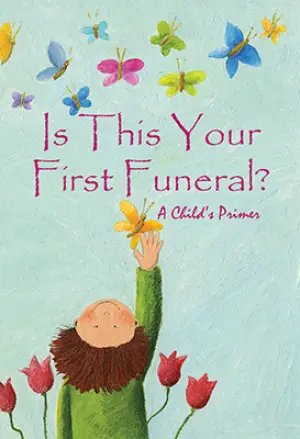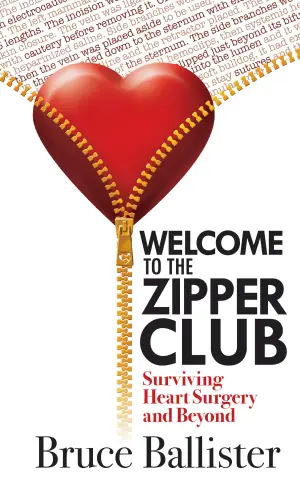“Hmph” is an onomatopoeic expression often used to convey annoyance, skepticism, or mild displeasure. Commonly typed or spoken, it serves as a quick, often playful, way for a person to express their feelings without going into a lengthy explanation. The simplicity and versatility of “hmph” have solidified its place in both casual conversations and written communication.
Table of Contents
The Nuances of “Hmph”
While “hmph” may seem straightforward, its meaning can vary significantly based on context. It can signify irritation when one is annoyed with a situation, disbelief when someone hears something unbelievable, or even satisfaction when someone is pleased with a personal accomplishment. A person might express a lighthearted “hmph” in response to a friend’s humorous but questionable story, while a more pronounced “hmph” might follow a frustrating experience at a restaurant.
Contexts Where “Hmph” Shows Up
- Casual Conversations: Friends often use “hmph” during light banter, particularly when teasing each other or reacting to a friend’s daring claim. For instance, if someone boasts about finishing a complex puzzle in record time, a friend might retort with a playful, “Hmph! You probably had help!”
- Social Media: In the world of social media, “hmph” packs a punch in comments or replies. Imagine scrolling through a TikTok video of someone performing a trick that seems improbable. A user might comment “hmph” to express doubt or skepticism about the trick’s authenticity.
- Literary Use: Authors sometimes incorporate “hmph” in dialogue to give characters personality. A standoffish character might huff “hmph” after being challenged, adding depth to their personality without lengthy exposition.
The Evolution of “Hmph”
Language constantly changes, and “hmph” is no exception. Often associated with the sound of someone holding their breath or puffing out the air in annoyance, it has evolved from oral expression to written form. It is now frequently seen in text messages and online conversations.
Historical Background
Historically, “hmph” has been part of the English lexicon for centuries. Early iterations of similar expressions can be traced back to literature, with noted authors using exclamations to convey characters’ emotions succinctly. As language and communication methods evolved, “hmph” found a new life in emotive texting, where brevity is key.
Impact on Modern Communication
In today’s digital age, “hmph” has transformed how people express feelings. With the rise of texting, social media, and quick communication, this simple expression allows users to convey emotion effectively. It can offer a layer of response that emojis sometimes miss, communicating attitude succinctly.
Real-world Applications of “Hmph”
To understand the practicality of “hmph,” let’s examine some scenarios where it fits perfectly into everyday situations.
In Personal Relationships
Imagine a situation where two friends discuss their plans for the weekend. One friend suggests an outdoor hike while the other would rather stay in. The latter might reply, “Hmph, why would I want to sweat it out when we could relax?” In this situation, “hmph” serves to punctuate disinterest while adding an element of humor to the discussion.
In Professional Settings
Even in the workplace, “hmph” can find a home. Picture an office environment where a manager has just announced a new project deadline that is deemed unrealistic by the team. One employee might let out a light “hmph” in a meeting, indicating disbelief without stepping on toes—an effortless way to voice dissent without causing disruption.
The Online World
In online forums or group chats, responses often need to be quick. If someone shares a particularly outrageous conspiracy theory, a simple “hmph” in response can sum up disbelief or skepticism without requiring a lengthy explanation.
Variations of “Hmph” and Their Meanings
While “hmph” is typically a standalone expression, it can take on variations that tweak its meaning slightly:
Lengthening “Hmph”
Extending the expression can enhance the emotion. For instance, “hmphhh” can imply greater annoyance or exasperation. If a person encounters an unresolvable issue after multiple attempts, they might exclaim, “Hmphhh, why can’t this ever work?!”
Adding Punctuation
A well-placed exclamation point can ramp up the expression’s intensity. A response like “Hmph!” might indicate a stronger emotional reaction compared to just “hmph.” This can amplify feelings of dismissal, making it clear that the speaker is not amused.
Cultural Significance of “Hmph”
Different cultures might adopt “hmph” or similar expressions in various ways. While English speakers might use this specific sound, other languages often have their versions. For example, French speakers might express disbelief with “pff” or “pouah.”
Modern Interpretations
Social and cultural changes continue to influence the expressions people use. Adapting “hmph” in meme culture and digital communications provides a connection across demographics. Younger generations may have different interpretations or reasons for utilizing “hmph,” infusing it with a sense of irony or sarcasm.
Why Use “Hmph”?
Using “hmph” allows someone to respond in a way that combines humor with emotional intelligence. It engages the audience and provides insight into one’s feelings without needing elaboration. For someone who feels uncomfortable expressing a more extended viewpoint, a “hmph” can effectively convey their feelings without escalation.
Simplifying Communication
In an age where instant messaging tends to favor brevity, “hmph” stands out as a way to simplify conversations. It closes a gap where a full-fledged response may be too much or inappropriate. In lighthearted discussions, where banter takes precedence, “hmph” serves as a functional, fun way to keep things moving without potential misunderstandings.
When to Use “Hmph”
Recognizing appropriate contexts can help a person decide when to use “hmph.” Here are some considerations:
- Light Banter: When joking with friends, feel free to use “hmph” to convey sarcasm or tease someone.
- Expressing Displeasure: In non-confrontational settings, “hmph” can express dissatisfaction while maintaining a light mood.
- Skepticism: When faced with outrageous claims or statements, using “hmph” indicates disbelief without lengthy explanations.
The Future of “Hmph”
As language continues to develop alongside technology and social trends, “hmph” will likely adapt in new ways. Whether it transforms through usage on different platforms or shifts in meaning based on cultural changes, the expression will maintain its core function: facilitating emotional expression in a quick, relatable manner.
Understanding the significance of “hmph” can bolster interpersonal communications, be it casual chats with friends or threaded discussions in professional emails. Before you type out your next witty response, remember how a simple “hmph” can enhance your conversation and invite laughter or inquiry.
Additional Information
Here are some intriguing facts about the meaning of “hmph” that you might not know.
- Origin in Expression: The term “hmph” is often used to express mild annoyance or disapproval, but its exact origin remains unclear, with some suggesting it has roots in the sound of a sneeze or cough.
- Cultural Variations: Different cultures have similar sounds for expressing discontent, such as “hmph,” yet they may be spelled or pronounced differently, highlighting a universal human expression.
- Body Language Enhancement: When paired with body language, like a shrug or eye roll, “hmph” can dramatically change its meaning, showing frustration or disbelief rather than mere annoyance.
- Literary Usage: Authors frequently use “hmph” in dialogue to give characters a sassy or dismissive tone, which can reveal their personalities without lengthy exposition.
- Psychological Impact: Using “hmph” can serve as a verbal placeholder, allowing someone to process their thoughts while also indicating they’re still engaged in the conversation, even if they’re momentarily annoyed.
- Technology Interference: In the age of texting and social media, “hmph” has evolved into various abbreviations and emojis, often losing its original nuance and leading to misunderstandings in written communication.
- Reactions to Hmph: It can evoke a range of responses from others, often prompting inquiries or further discussion about what caused the discontent, making it an icebreaker of sorts in conversations.
- Gamification of Hmph: Some pop culture references have transformed “hmph” into a playful term, often used in memes and online content to depict frustration, turning annoyance into entertainment humorously.
- Influence in Music: Musicians and songwriters have incorporated the sound “hmph” into lyrics to convey attitude or sass, making it an auditory cue that fans resonate with instantly.
- Phonetic Fun: The simplicity of “hmph” gives it a unique phonetic quality that’s easy to say, making it a popular choice in both casual speech and creative expressions.
Frequently Asked Questions (FAQs) Related to Hmph Meaning
Q. What does “hmph” mean?
A. “Hmph” is an expression of dissatisfaction or annoyance. It’s often used to convey a sense of disapproval or to express irritation without using words.
Q. Is “hmph” a formal expression?
A. No, “hmph” is informal and typically used in casual conversation or writing. It’s more of an emotional sound than a structured phrase.
Q. When might someone use “hmph”?
A. People use “hmph” when they are unimpressed, suspect something isn’t right, or when they disagree with a statement.
Q. Can “hmph” be used positively?
A. Generally, “hmph” is not used in a positive context. It leans more toward expressions of frustration or skepticism.
Q. Is “hmph” spelled differently in other languages?
A. Yes, while “hmph” is commonly used in English, other languages may have similar expressions that capture the same sentiment, although the spelling will differ.
Q. How do you pronounce “hmph”?
A. “Hmph” is pronounced as a soft, drawn-out sound, often made by closing the lips and pushing air through the nose while forming the “h” sound.
Q. Is “hmph” recognized in writing?
A. Yes, “hmph” is often used in dialogue within novels and comics to depict a character’s feelings without needing additional explanation.
Q. Can “hmph” be used in professional writing?
A. Generally, it’s not appropriate for formal or professional writing. It’s best reserved for informal contexts, such as personal blogs or creative works.
Q. Does “hmph” have any synonyms?
A. Yes, some synonyms for “hmph” include “humpf,” “pfft,” or “tch,” all of which convey a similar sense of annoyance or disbelief.
Q. How can I convey the feeling of “hmph” without using the word?
A. You can describe body language or facial expressions, such as rolling your eyes or crossing your arms, to show irritation or displeasure without explicitly saying “hmph.”
Conclusion
“Hmph” serves as a versatile expression in our daily conversations. It captures a range of emotions, from annoyance to contemplation, often replacing the need for lengthy explanations. Whether you’re using it in a text, a chat, or face-to-face, it’s a quick way to convey your feelings. Knowing its meaning improves communication skills and makes reading social situations easier. So, the next time you hear or use “hmph,” remember it’s more than just a sound—it’s a reflection of our shared human experience.







